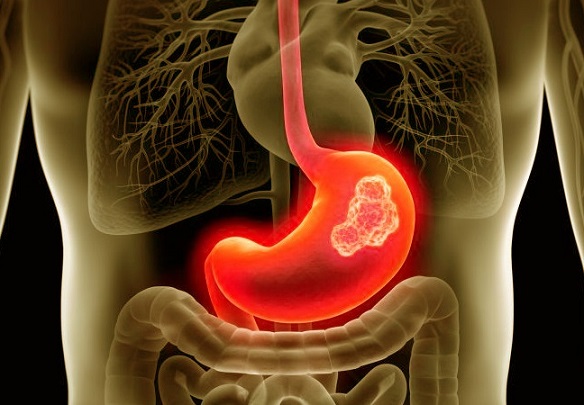New Hope for Hard-to-Treat Digestive Cancers as Treatment Strategies Rapidly Evolve
Nikhil Prasad Fact checked by:Thailand Medical News Team Apr 14, 2025 1 day, 9 hours, 49 minutes ago
Medical News: A team of top researchers from the University of Texas MD Anderson Cancer Center is offering fresh insights into the battle against some of the most aggressive cancers affecting the upper digestive tract. Their new study explores the evolving landscape of treatments for locally advanced cancers of the esophagus, gastroesophageal junction (GEJ), and stomach — cancers which have long been associated with poor survival rates despite aggressive therapies.
 New Hope for Hard-to-Treat Digestive Cancers as Treatment Strategies Rapidly Evolve
New Hope for Hard-to-Treat Digestive Cancers as Treatment Strategies Rapidly Evolve
These cancers are notoriously difficult to treat, and globally they remain among the leading causes of cancer-related deaths. Although half of the patients diagnosed still present with potentially curable disease, five-year survival remains bleak at around 21.6% for esophageal cancer and 36.4% for gastric cancer. This
Medical News report takes a closer look at the recent innovations that are reshaping treatment strategies for these difficult cancers.
Endoscopic Options for Early Cases but Surgery Still Reigns
For patients diagnosed at a very early stage, where tumors are confined to the inner lining of the digestive tract (classified as cT1a), endoscopic resection techniques are proving effective. The Western world primarily uses Endoscopic Mucosal Resection (EMR), while Endoscopic Submucosal Dissection (ESD) is more popular in Asia. When high-risk features like lymphovascular invasion or poorly differentiated cells are detected, surgery may still be needed.
However, for more advanced stages of these cancers, surgery remains the primary option. For esophageal cancers, this means esophagectomy with lymph node removal, which can be done using open or minimally invasive techniques.
Gastric cancers typically require a more extensive surgery known as a D2 gastrectomy, which includes removal of lymph nodes in multiple regions. Surgical plans also depend on the tumor’s exact location, following classifications such as the Siewert system to determine whether the tumor behaves more like a gastric or esophageal cancer.
Chemotherapy and Radiation Strategies in Constant Tug of War
Although surgery is crucial, combining it with other treatments dramatically improves survival. The FLOT regimen (fluorouracil, leucovorin, oxaliplatin, and docetaxel) is now considered the gold standard for chemotherapy in these cases. It showed significantly better survival compared to older chemotherapy regimens, boosting five-year survival rates to around 50%.
Radiation therapy, once a common choice before or after surgery, is now being used more selectively. Trials such as CROSS showed that preoperative chemoradiation improved survival compared to surgery alone in esophageal and GEJ cancers. However, newer studies like ESOPEC found that perioperative FLOT chemotherapy alone was even more effective, shifting the balance away from routine radiation use.
Immunotherapy Still Promising but Lacks Breakthrough Impact
<
;br />
Immunotherapy has revolutionized treatment for metastatic gastroesophageal cancers, but its role in early and locally advanced stages is still being tested. Adding drugs like nivolumab or atezolizumab to chemotherapy or radiation has shown promise in improving tumor response rates, but so far no trial has shown a clear survival advantage in early stages.
One exception is the CheckMate 577 trial, where adjuvant nivolumab (after surgery and chemoradiation) significantly extended the time patients remained disease-free. As a result, it is now part of standard care for patients with residual disease after surgery.
For patients with a specific genetic signature called MSI-H (microsatellite instability-high), immunotherapy shows remarkable success even without chemotherapy or radiation. Trials like NEONIPIGA and INFINITY showed tumor disappearance rates above 58%, suggesting that these patients could potentially avoid surgery in the future.
Targeted Therapies for HER2 Cancers Still Underwhelming
In contrast to the success of HER2-targeted drugs in advanced stages, they have not improved outcomes in earlier stages. Multiple trials including RTOG 1010 and INNOVATION failed to show meaningful survival benefit when adding HER2-targeted drugs like trastuzumab or pertuzumab to standard chemotherapy. Toxic side effects and lack of lasting tumor response remain key challenges.
What Lies Ahead
Looking forward, researchers are hopeful that ongoing trials and new technologies will provide more personalized treatment strategies. One area gaining attention is organ preservation or “watch-and-wait” strategies for patients who have a complete response after preoperative therapy, potentially avoiding surgery altogether.
Advanced tools such as circulating tumor DNA (ctDNA) are being tested to detect early recurrence or to predict which patients will benefit most from certain treatments. Cellular therapies like CAR-T cell therapy are also being investigated, though they are still in early stages for solid tumors.
Conclusion
Despite years of research and numerous treatment strategies, locally advanced gastroesophageal cancers remain one of the most challenging cancers to treat. However, there is hope. The adoption of perioperative FLOT chemotherapy has already improved outcomes, and promising research into immunotherapy, predictive biomarkers, and personalized treatment plans may one day make surgery avoidable for some patients. There is an urgent need for continued innovation, especially in identifying which patients will benefit most from specific therapies. The dream is not only to extend survival but to do so while preserving quality of life.
The study findings were published in the peer reviewed journal: Cancers
https://www.mdpi.com/2072-6694/17/8/1307
For the latest Cancer News, keep on logging to Thailand
Medical News.
Read Also:
https://www.thailandmedical.news/news/dairy-consumption-and-the-risk-of-digestive-cancers
https://www.thailandmedical.news/news/annexin-a2-as-a-biomarker-and-therapy-target-for-digestive-system-cancers
https://www.thailandmedical.news/news/covid-19-triggers-chronic-gastritis-alters-stomach-cell-functions-and-push-gastric-cells-toward-cancer-like-states
https://www.thailandmedical.news/pages/thailand_doctors_listings
https://www.thailandmedical.news/pages/thailand_hospital_listings
https://www.thailandmedical.news/articles/hospital-news
